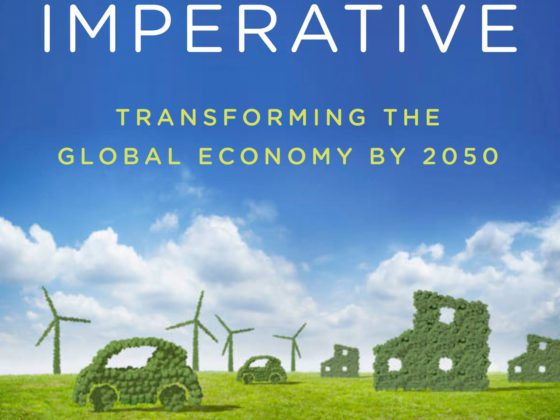What happens when UVA Darden puts 50 delegates in a room all day in Washington, DC to discuss ways in which we can catalyze the disruptive innovation needed to mitigate climate change? Meaningful, cross-sector dialogue among a diverse set of stakeholders that leads to the creation of novel approaches to more rapidly moving the needle and influencing change. That, and lots of excitement!
The goal of the Jefferson Innovation Summit was to create a Policy Playbook that presents new and innovative ideas that inspire public and/or private industry action. Delegates debated and ideated solutions that led to six actions ranging from creating a national clean energy bank to building the utility of the future. One action in particular, if deployed, could pave the way for all other actions – launching a national “moonshot” on clean technology.
In the 1960s it was putting a man on the moon. With the help of government financial support and collective brainpower from scientists around the world, it happened. Climate change presents a similar science and technology challenge. Yet the same type of U.S. leadership that opened up space travel is not likely to come from the current administration.
In the absence of this leadership, we must look to private corporations, state and local authorities, and concerned citizens to push the clean technology agenda forward. The Policy Playbook is written with this broader call to action in mind and will be published later this month. After publication comes the real work – but who will take the lead?
This very question was asked of several corporate leaders on May 3rd by Professor Mike Lenox during a sustainability innovators roundtable held at Darden’s new Sands Family Grounds in Rosslyn, VA. The short answer – look to corporate and state/local leadership to get things done.
I have good news! Efforts are already underway on many of the actions. One that drove much of the discussion was around workforce training and economic development. Moving the country to clean technologies is only good if you bring all Americans along too, which will require reskilling and training especially in places historically coal-dependent like West Virginia. This is happening today thanks to efforts by organizations like Coalfield Development, who is working to rebuild the Appalachian economy.
Localized action is a great, important first step but to truly have an impact, we need disruption on a national scale. The federal government typically serves this role but a national coalition of private and local organizations could be created that connects the dots and brings ideas to scale.
What transpired was the sharing of ideas about organizations to engage and opportunities for UVA Darden to continue to play the role of trusted, third-party convener of discussions with stakeholders that may never collaborate otherwise, to solve these challenges and push forward cross-sector solutions.
After the meeting ended and attendees returned to their day jobs, I couldn’t help but look out the boardroom window at the vast DC skyline with a new sense of hope that no matter what happens – or doesn’t happen – on Capitol Hill, industry will forge ahead and honestly, we may be in better hands.


